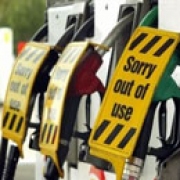
Logan and Albert Conservation Association

 Transition Movement - what is it?
Transition Movement - what is it?
A Transition Initiative is a community working together to look Peak Oil and Climate Change squarely in the eye and address this BIG question: "for all those aspects of life that this community needs in order to sustain itself and thrive, how do we significantly increase resilience (to mitigate the effects of Peak Oil) and drastically reduce carbon emissions (to mitigate the effects of Climate Change)?"
The Transition Movement was born out of the Kinsale Energy Descent Action Plan (see link below), inspired by David Holgrem's book Permaculture - Principles and Pathways Beyond Sustainability and Richard Heinberg's book Powerdown. While this movement started in the UK in late 2005, it has spread rapidly in Europe, North & South America, South Africa, Australia & NZ. There are over 100 officially recognised Transition Towns (or cities, districts, villages, islands & even a forest!) and over 900 other communities worldwide thinking about the energy descent journey (see links)
In the transition approach, cutting carbon is one of many resilience indicators for communities to prepare for an energy-lean future.
Other community resilience indicators might include:
percentage of food consumed locally that was produced within a given radius;
number of businesses owned by local people;
percentage of the community employed locally;
percentage of local trade carried out in a local currency;
percentage of essential goods manufactured within a given radius;
percentage of energy consumed in the town that's been generated by local ESCO (wind, solar etc);
amount of 16 year olds able to grow 10 different varieties of vegetables;
percentage of local building materials used in new housing developments etc
Starting a local Transition Initiative is a creative and organic process.
As Patrick Holden says,
peak oil and climate change can so often leave one feeling depressed and disempowered. What I love about the transition approach is that it is inspirational, harnessing hope instead of guilt, optimism instead of fear...and offers a gentle helping hand in the transition towards a more local, more human and ultimately more nourishing future.
Rob Hopkins (co-founder of the Transition Network & founder of Transition Town Totnes said
We live in momentous times: times when change is accelerating, and when the horror of what could happen if we do nothing and brilliance of what we could achieve if we act can, at times, be overwhelming...
The twin drivers of the Transition concept are peak oil and climate change, the two greatest challenges facing humanity at the beginning of the 21st century (heading a long field of competitors).
Transition initiatives are an emerging response: in essence, a powerful carbon reduction technology and a new way of looking at and responding to climate change and peak oil...
The inevitable and profound changes ahead can have a positive outcome. These changes can lead to the rebirth of local communities, which will grown more of the own food, generate their own power and build their own houses using local materials. They can also encourage the development of local currencies, keeping money in the local area.
Aside from climate change and peak oil, there is also the current global economic crisis. Sara Phillips in the latest issue of G Magazine, has called it the perfect storm - a time when the world can no longer proceed as before, and will have to make big decisions
What can you do next?
1) Join the Scenic Rim Transitions to Resilience group. We aim to be a local transition / support hub as we all look at transitioning our individual towns and smaller communities in the Scenic Rim area. We've set up a Yahoo groups site - please email leckos[at]optusnet.com.au for details of how to join.
2) Read the Transition Primer http://transitionnetwork.org/Primer/TransitionInitiativesPrimer.pdf - good introductory read if you don't want to buy the recent book by Rob Hopkins, The Transition Handbook - From Oil Dependence to Local Resilience. This is available from Avid Reader www.avidreader.com.au
between $35 & $40. ISBN 978 I 900322188
3) Read some suggested steps for embarking on a Transition journey http://transitiontowns.org/TransitionNetwork/12Steps
4) Check out 10 steps you can start to do to transition calmly into a post-carbon world http://www.postcarbon.org/ten-steps-individuals
5) Start a local Transition Initiative in your town / community. The websites, primer and handbook have a lot of ideas but some processes include:
6) Check out what other local transition towns are up to (eg: Sunshine Coast http://www.seac.net.au/main/ ; Sydney http://www.transitionsydney.org.au/
7) Think about upcoming events that might be of interest that we can list on the Yahoo groups. Screening of Australia Pumping Empty at Canungra 6 November was an outcome of an earlier workshop held at Wild Mountains.